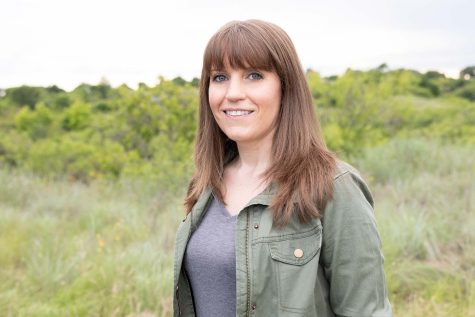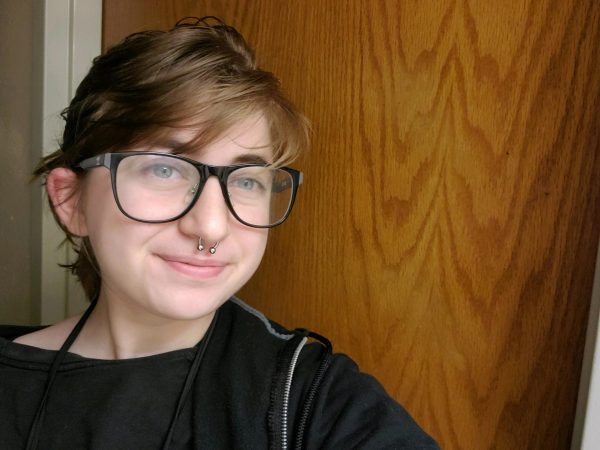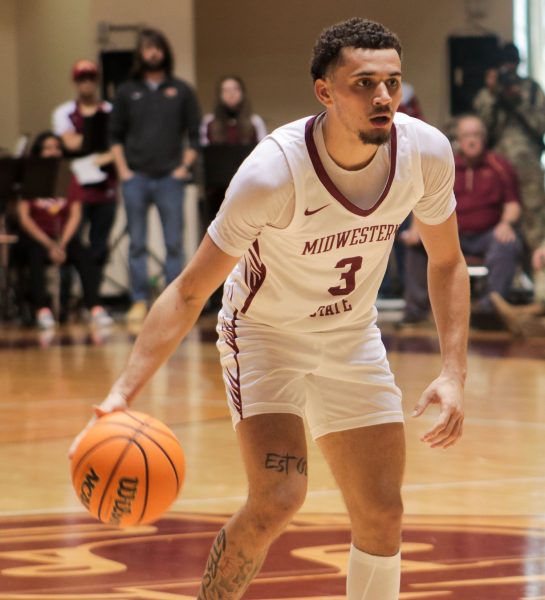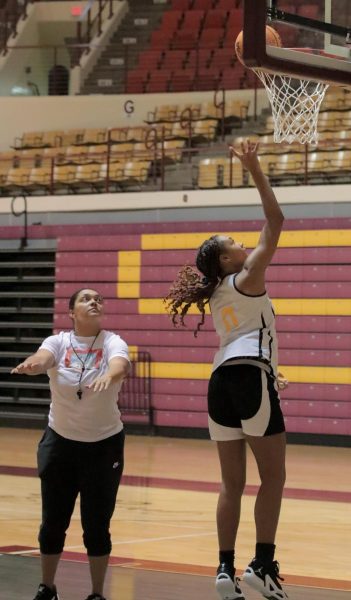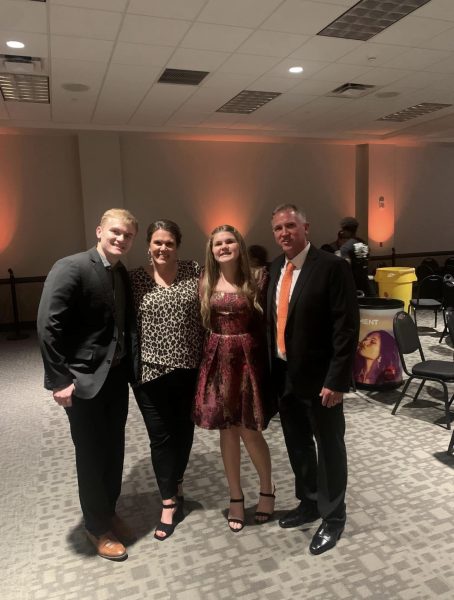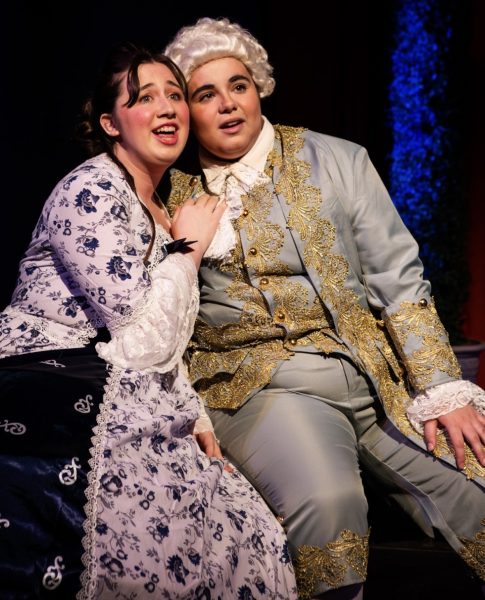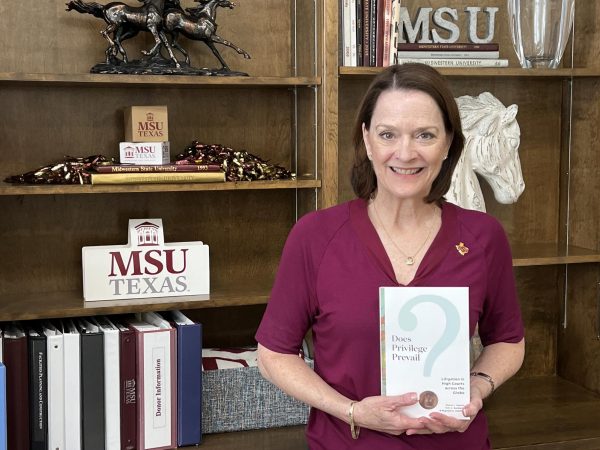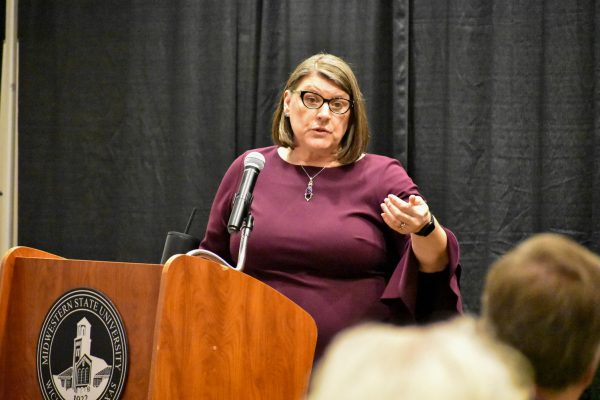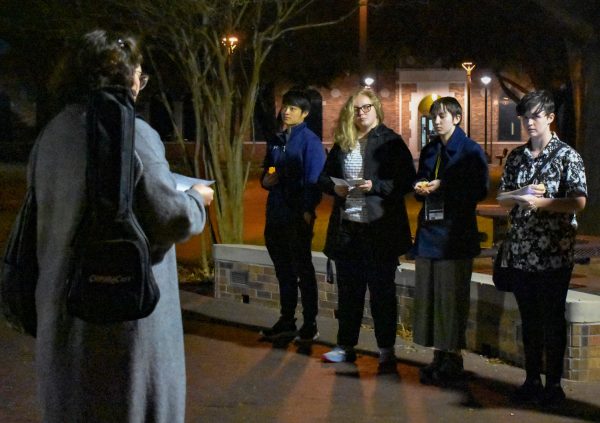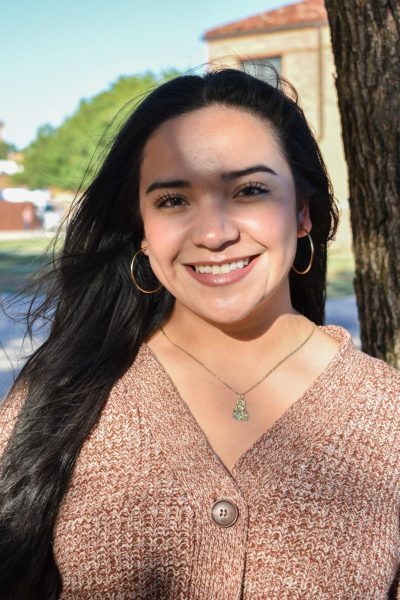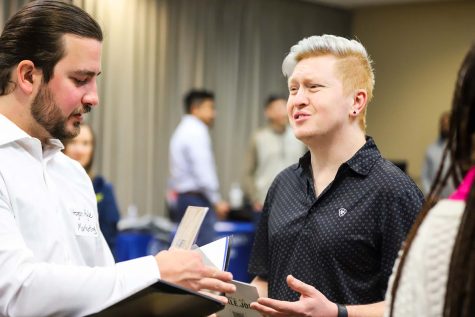Women of MSU
Maria Contreras-Lerma, Moffett Library Custodian
Contreras was born and raised in Julimes, Mexico. She came to the United States when she was 16 years-old in search of a better life. In May, Contreras will mark her 15th anniversary working for MSU. She is the daughter of Mexican farmers and comes from a big family (six sisters and five brothers). Contreras’s dad also traveled back and forth to the United States for work when she was a child, leaving her mother to take care of the farm and field work. Contreras got her strong work ethic from her mother, who reminded her that one should always be dedicated to their job, no matter what it is.
“She took care of all of us but all of us also helped her. She would work at home but she would also take care of field work. Sometimes she would take some of us with her to work when we were little. She would pick things like peanuts and chiles. She would also let us help her feed the animals. She was always a very hard worker,” Contreras said.
Contreras’s assigned building is Moffett Library but she has worked in various buildings across campus throughout her many years at MSU. She said she enjoys working in the library because everyone there is very kind and helpful. She also said that being a woman means being a symbol to others.
“Being a woman means being a symbol of strength and bravery and to persevere in any situation,” Contreras said.
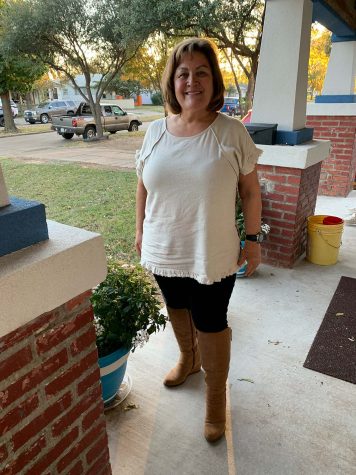
Jessica Hulett, Assistant to Dean,
Hulett grew up in Las Vegas, Nevada and graduated from high school in Vegas. From there, she got her certification in HR management from the University of Phoenix.
“I thought that I could impact people the most with the certification…I thought I would be able to interact with more people this way,” Hulett said
This upcoming June, Hulett will have lived in Texas for 12 years. She said her better half is what brought her to Texas.
“I met my better half in Vegas. We met one night at a country dance club… the night I met him, I knew I was going to spend the rest of my life with him. He was in the Air Force and once he retired we settled here in Wichita Falls. My first job in Wichita was as a leasing agent for an apartment complex. I then later managed a complex myself and eventually got burned out by doing so. When I first came to work for MSU, I actually worked at the bookstore and then one day saw a job posting to be the secretary of [the] mass communication and theater department,” Hulett said.
When she left the interview, she didn’t think she would get a call back. Hulett said she felt she wasn’t intellectual enough for the job.
“I just wasn’t convinced that they were going to hire me… then three days later I received the phone call that the department was wanting to give me the position. I love the stability of MSU. I love the building I work in. It has such a good positive feeling to it and honestly every day I am excited to be here and work with the people that I work with; it makes my heart happy. Now, since Dr. Sernoe has moved to interim dean of the college of fine arts, I have moved to the dean’s office…Every day I am glad that I am here with him and that we have each other,” Hulett said.
Hulett said that having a kind and compassionate heart is what is most important to her. The last thing Hulett says she would want is for someone to have their guard up around her. Hulett said she tries to be as welcoming and accepting to anybody she comes across.
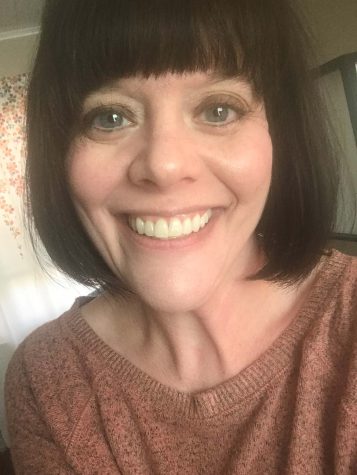
Morgan Mallory, assistant professor of musical theater and acting,
Morgan Mallory is the assistant professor of musical theater and acting at MSU. Originally from Idaho, she has enjoyed living in states such as Utah and California. A fun fact about Mallory is that she is six feet tall. She decided to be a teacher because she enjoys helping people reach goals safely and successfully. Her favorite aspect about MSU is the support given to faculty and students to create a safe space to explore creativity, possibilities and a sense of community. Mallory loves that Women’s History Month focuses on women and lifting them up. She hopes that this month can be used to celebrate success and provide opportunities.
“We very much need to be a positive mirror for each other and showcase what beautiful creatures we are,” Mallory said.
The woman that inspires her most is her grandmother, a firm and well-spoken woman who achieves her goals despite societal gender norms. Morgan Mallory wishes to impact other women by encouraging the empowerment of differences. She believes that this can be accomplished by suggesting women for opportunities, placing them in roles usually held by men and being unafraid to speak up.
“We are strong individually, but together imagine what we could accomplish?” Mallory said.
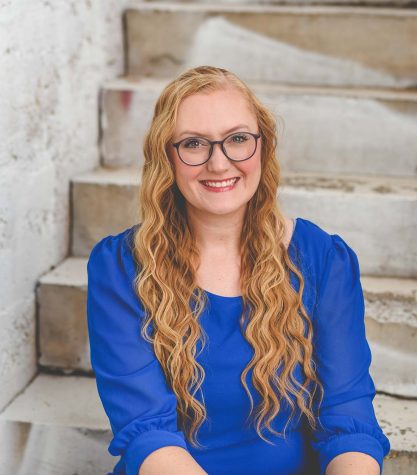
Kirsten Lodge, English professor
Lodge grew up in New Paltz, New York. She spent her senior year of high school studying in France, then she attended college at Cornell. She studied art history at the Central European University in Prague, then Russian literature at Joensuu University in Finland and at Harvard before earning her Ph.D. in Russian and Czech Language and Literature from Columbia University. She is now a literary translator for Broadview Press, a well-known academic press in Canada, and has been teaching at MSU for over 10 years. Lodge has never allowed an individual’s or society’s view of who a woman should be to define her career path and life goals.
“As far as my gender is concerned, I haven’t experienced significant bias in academics, but I have experienced it in personal relations. For example, my ex-husband seemed fine with my academic ambitions until it came down to attending graduate school. At that point, he unexpectedly declared that he wanted to be the money-maker in the relationship and that I should stay home, raise children and entertain guests from his law firm. To stay true to myself, I had no choice but to leave him to go to graduate school at Columbia. I knew that I could not be happy otherwise,” Lodge said.
Lodge believes in the significance of women’s history month and is proud of her fellow women from different walks of life. She is a proud feminist and advocates for the belief that women can and should be whatever they want.
“I think the world is making progress in recognizing women of significance in every field, and we must continue to do so. There are many great women writers, artists, and thinkers who have been lost to history, and we must continue to recover and celebrate their achievements, as well as the achievements of women today. We will thus encourage women to strive for greatness in every field.” Lodge said.
When asked what advice Lodge has for a young girl growing up as a woman in today’s world, she had this to say.
“I would advise her not to be afraid to realize her dreams, whatever they may be. It is fine to be a housewife, and it is fine to pursue a career in a field traditionally dominated by men. It should be her choice. I would also advise her to travel if she can, as I learned so much about life by experiencing different cultures. She should not feel held back in that respect just because of her gender. At the same time, I would caution her that gender bias does still exist, and women can be just as biased as men. Often bias is unconscious, and it can be very subtle. She should learn to recognize bias if she experiences it and advocate for herself,” Lodge said.
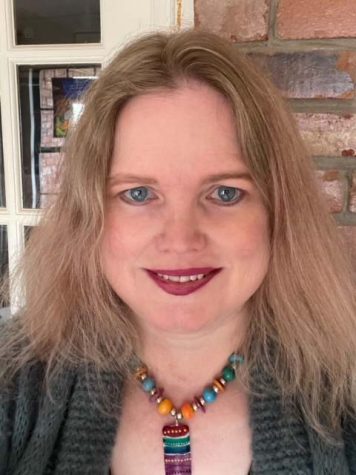
Lisa Thames, TV studio director
Thames started working as TV studio director in 2009 after a mass communication professor recommended she apply for the position. As she set her sights on leaving Wichita Falls, she was reluctant to apply, but she did it anyway and got the job. Thames said it helped her step away from a bad relationship and get better healthcare. Her favorite part of the job, though, is working with the mass communication students and helping them understand the overwhelming amounts of information that can be thrown at them in their production courses. She said that she was inspired seeing her mother raise a family and work at the same time.
“One of the things that was big when I was growing up… [was] take your daughter to work day. It was a national thing… It was a big deal going to work with my mom and seeing what she was able to do. As I got older, [I] understood even more [of] all the struggles that she went through to raise two kids on her own with no help from my dad. It was tough. I figured out real quick, too, after my son was born, how tough that is,” Thames said. “Anytime you can see a woman being successful in her career or even just a regular job, it’s always exciting. We’re still fighting to be considered equal. We have more opportunities than we used to but by no means are we equal to men. We don’t get paid the same for the same job. We don’t get taken as seriously. So, it’s always important to see women in the workforce.”
Thames said that for women, it’s often a matter of “when” and not “if” they are sexually harassed or discriminated against. When she experienced sexual harassment, she was in a state of shock and didn’t know until much later how she was supposed to respond or ask for help. She offered encouragements for other women who experience harassment and discrimination in their fields.
“You gotta keep pushing. It can be really scary. I’ve had my experiences with sexual harassment and disparaging comments in those types of things, but you can’t let it bring you down and you can’t let it stick with you. You’ve got to stick up for yourself as hard as that is, and it’s very, very hard. Especially in the moment, to react the way that you wish that you would, but it’s important to continue on, to keep pushing, to not let that get to you and to rise above whatever it is that that person who said that to you thinks of you, because you’re not that. It reflects poorly on them. They don’t feel like it does, but it does. So, you really just gotta keep going and have faith in yourself and build that confidence in yourself that you deserve to be where you are. You’re working hard for where you are. You’re not given anything just because you’re a woman. No one is going to take it easy on you and you don’t want it to be like that. You don’t want to be given anything. You want to work for what you have so you can have that pride within yourself,” Thames said. “We walk such a fine line between being a strong woman and yet you can also be considered a bitch. Because if you are strong, if you are confident in yourself, if you hold other people to high standards, if you don’t get pushed around, you should be at that point considered to be a strong woman, right? …but the world will tend to see you right now as a bitch. It’s a very sad reality. One that we’re still trying to break through. We’re getting closer. We’re getting there, but we’re still a long ways away. So anytime you can see examples of women who have broken through that glass ceiling and are doing positive things, then you should always be encouraged.”
